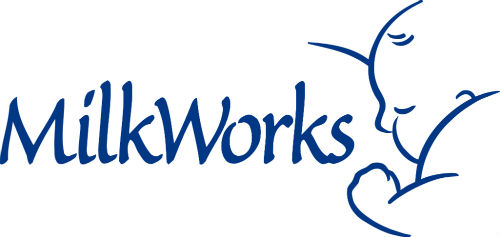
Meet Teresa Peña, one of Lincoln's culturally diverse CBEs
Where did you grow up and where is your family from?
I was born and raised in Brooklyn, NY. Both of my parents were born and grew up in Puerto Rico and moved to New York City as teens. Josh, my husband, grew up in Lincoln. We moved here with our family about four years ago. Lincoln is a great place to live, but I will forever be a proud Brooklynite.
Why did you breastfeed your kids?
My siblings and I were not breastfed as infants. Growing up, I assumed that all babies were bottle fed with formula. I had never seen a woman in my family breastfeed a baby. Ever. As I got older, I thought it was something that only upper middle class white women did. During my senior year of college, I took a class called, "The Psychology and Culture of Pregnancy, Childbirth and Motherhood." This course changed my perspective on breastfeeding. I learned about so many misconceptions about childbirth and motherhood. I knew then, that if I decided to start a family, that I would want to make breastfeeding work. Also, when my older sister became a mother, she breastfed her son. I admire and trust my sister a lot, so her actions influenced me as well.
What were your breastfeeding experiences like?
A day before I delivered my daughter, I was diagnosed with HELLP syndrome - a serious complication with high blood pressure and a low platelet count. After a stressful delivery, I remember asking if it would be okay to try to breastfeed. My daughter latched right away, and I thought we were on our way to breastfeeding bliss! We spent a week in the hospital, and I was on a lot of medication and fluids to help control my blood pressure. A lot of that medication made my daughter sleepy and difficult to nurse. She developed jaundice and I was pressured by many rotating physicians into using formula. The rooms were stocked with baby formula and I was never encouraged to use the hospital grade breast pump in the room to help my milk come in. I had to advocate for myself and demand that I be able to use the breast pump in the room.
Agnes Brooks, one of my nurses, was an angel to me. She taught me to nurse my baby, pump and then feed my daughter my pumped milk using a syringe and a cup. She was invested in my desire to breastfeed. It was with her encouragement that I was able to feel empowered to continue that journey and not give up. I left the hospital after a week and worked really hard to establish good breastfeeding practices. There were not many accessible breastfeeding groups available in my area of Brooklyn and I found myself isolated at home trying to figure it all out. When questions arose, often in the middle of the night, I turned to Google.
When I returned to the classroom after five months, I was confronted with new challenges to breastfeeding. The lactation room at my school was an old closet that was dirty and had peeling paint hanging from the ceiling. I shared the room with another new mom. We advocated to have the room cleaned. Every day after teaching our morning classes, we would race to the lactation room and begin pumping while also grading papers and eating lunch. We supported each other with pep talks, breastfeeding tips, and company. Together, we helped one another avoid what seemed at the time like insurmountable disasters. Each day felt like a crazy race, but it was the one thing in those early months that connected me with my child and to another new mom. That support carried me through the first year.
When I had my second child, a son born in Lincoln, breastfeeding was easier, but not without challenges. After birth, I was supported by amazing midwives and a baby friendly hospital that strongly supported families in breastfeeding. Latching was challenging and very painful. My son was small and was not gaining adequate weight. I visited with breastfeeding consultants several times a week who helped me with establishing a strong milk supply and proper latching.
I breast fed both my children for over two years and I absolutely loved the connection that breastfeeding helped create.
How did you get involved with the CBEs?
I found MilkWorks while picking up my breast pump. The warm and inviting environment was unlike anything I had ever seen before. As many resources NYC has to offer, I never found a place like a MilkWorks there. I saw an email from Ann when my son was about 6 months old about the program and jumped at the opportunity to meet other women of color who were also passionate about breastfeeding. I think I emailed the application within minutes of receiving it.
What do you like most about working alongside other breastfeeding advocates?
I think that the CBEs are an extraordinary group of women. We come from such diverse backgrounds and are connected by the desire to support other women and their families in breastfeeding. I have developed wonderful friendships with these women that have made me feel more connected to the Lincoln community.
How do you think our community can provide better support to new moms and dads?
I think that support, encouragement, and education are key to breastfeeding success. I think Lincoln is a great city and it is encouraging to see all the initiatives and programs here that are raising breastfeeding awareness, education and supporting families of color.
The support I received from nurses, new mothers, and breastfeeding advocates was essential to my success in breastfeeding both of my children. Through my work as a CBE and a Certified Lactation Counselor (CLC), I hope to provide that same support and encouragement to women and families in our community.
